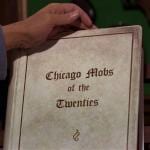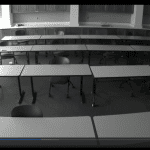I make the point regularly that there is no such thing as “the Bible.” The Jewish Bible and Protestant Old Testament may contain the same books, but they are categorized differently, translated differently, and approached through different frames of reference. Catholic and Orthodox Bibles are different from Protestant ones, and once again the assumptions of readers tend to be too. There are, at best, many Bibles, and the use of the singular as though it denoted a universally agreed upon set of contents is misleading. I have no doubt that people will still continue to say “the Bible says” nonetheless.
That’s not the sense in which Steve Kindle recently made this point, however. He also says that “the Bible” does not exist in the sense that most people imagine, but is emphasizing a different aspect of its non-existence, as it were. Here’s what he has to say on the topic:
The Bible does not exist. It does not exist in what most Christians (and others) think of as the Bible, a univocal, time transcendent bearer of unequivocal truths from the very mouth of God, albeit transferred by the hands of men. Rather, the Bible is very much a time-bound book that argues with itself, represents outlooks from various traditions often in opposition, which often displays the frailties of humanity as characteristics of God, and shows a God who evolved through time. It is a shape-shifting, amorphous compendium of some 31,102+/- verses that have been contorted into any position a person wishes to take. The Bible doesn’t exist.
What we have is a Bible made up of anyone’s choice in anyone’s mind. If you doubt me, how do you explain the diversity of the Bibles trotted out beginning with “The Bible says.” What always is meant, yet seldom understood, is “the Bible I have in my mind says….” These are the only Bibles that exist.
And we love these Bibles, as they are of our own creation. Much like our own children, they carry our DNA. They are created in our own image. As Anais Nin so perceptively observed, “We do not look at the world as it is. We look at the world as we are.”
The foregoing is not a condemnation; it is a reality check. If we are going to make any progress at all we must know what we are dealing with. The place to begin, it seems to me, is to recognize that since the Bible is what we make it, we must understand this and know how this happens. In many ways, this is a freeing exercise.
Knowing that we pick and choose as we make our way through the text, we are also aware that the same is true for others. Therefore, we learn to hold our points of view more humbly and tentatively. It also frees us up to actually learn from others who have come to different conclusions (a different “Bible”, if you will). And it helps us see how the various themes of the Bible came together—in much the same way that we put our personal Bibles together.













